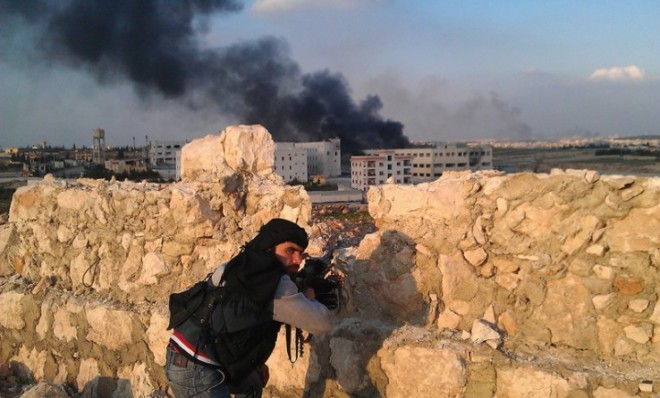America's deadly parade of Middle East follies continues
Instead of being chastened by failure, President Obama seems intent on replicating our errors


Since the 9/11 attacks in 2001, the U.S. has intervened several times in the Muslim world. Some of the actions have turned out better than popularly assumed, and some have turned into disasters with relatively little coverage.
Last month, the media used the tenth anniversary of the 2003 invasion of Iraq to reopen the debate on the war, largely assuming a point of view of defeat. Iraq's Prime Minister Nouri al-Maliki responded this week in The Washington Post to argue that the U.S. won an important regional ally in Iraq, and ended a brutal dictatorship to boot.
Plus, Maliki objects to the assumption that the U.S. lost Iraq. "Despite all the problems of the past decade," Maliki wrote, "the overwhelming majority of Iraqis agree that we're better off today than under Hussein's brutal dictatorship." The U.S., meanwhile, also gained greater influence through its strategic partnership with Baghdad — a partnership, Maliki emphasized, and not "a protectorate of the United States."
The Week
Escape your echo chamber. Get the facts behind the news, plus analysis from multiple perspectives.

Sign up for The Week's Free Newsletters
From our morning news briefing to a weekly Good News Newsletter, get the best of The Week delivered directly to your inbox.
From our morning news briefing to a weekly Good News Newsletter, get the best of The Week delivered directly to your inbox.
So much navel-gazing attended the tenth-anniversary observations of the Iraq invasion — and understandably so. But there seems to be little navel-gazing for a more recent intervention that has much more relevance to today's crises in the region. In 2011, Barack Obama pushed NATO into a war with Moammar Gadhafi, based on a "responsibility to protect" civilians at risk for military attacks by the regime in Tripoli.
At first, the U.S. led the air war on Libya to prevent an assault by Gadhafi's forces on Benghazi, and later turned over the offensive missions to NATO. Within a short period of time, however, NATO broadened its mandate to include attacking Gadhafi's forces wherever they stood, as well as on the command and control assets. The West armed militias and provided them with critical support, enforced no-fly zones over their operations, and gave them enough power to overthrow the regime.
All of this took place without having put any substantial NATO ground forces in Libya to assert any control over the arms and militias that replaced the Libyan regime. The Obama administration bragged openly about the successful deposing of Gadhafi, comparing the strategy favorably to the Iraq War. My colleague at The Week, Daniel Larison, warned presciently in October 2011 that the victory heralded by the White House was a disaster waiting to happen, and that Syria would absorb the fallout:
Contrary to the hope that Libya would provide a deterrent to regime violence elsewhere, the political fallout from the war has stalled any international response to Syria's crackdown. By exceeding the U.N. mandate they received in March, the U.S. and its allies have poisoned emerging democratic powers such as India and Brazil against taking any action in other countries. Libya has confirmed every skeptic's worst fears that in practice, the "responsibility to protect" is little more than a pretext for toppling vulnerable governments.
A few months later, Larison predicted with even greater accuracy the next move of the newly-liberated Islamist terror networks in eastern Libya.
A free daily email with the biggest news stories of the day – and the best features from TheWeek.com
But the Libyan war's worst impact may have occurred outside of Libya. The neighboring country of Mali, which also happens to support U.S. counter-terrorist efforts in western Africa, has been roiled by a new Tuareg insurgency fueled by the influx of men and weapons after Gadhafi's defeat, providing the Tuareg rebels with much more sophisticated weaponry than they had before. This new upheaval benefits al Qaeda in the Maghreb (AQIM), and the Tuareg uprising threatens the territorial integrity of Mali. The rebellion has also displaced nearly 200,000 civilians in a region that is already at risk of famine, and refugees from Mali are beginning to strain local resources in Niger, where most of them have fled. "Success" in Libya is creating a political and humanitarian disaster in Mali and Niger.
Terrorist networks in eastern Libya, which had once provided al Qaeda in Iraq with thousands of suicidal recruits, had barely been controlled by Gadhafi; after his fall, they took over the entire area. Western nations, including our NATO partners, bailed out of the same Benghazi the intervention had been designed to protect, and the U.S. lost its consulate and four Americans to a terrorist attack there. The terrorist networks then turned their attention to neighboring Mali and sacked Timbuktu, forcing the French to stage a military intervention to keep al Qaeda from creating a terrorist state.
One might think that because of this, the doctrine of disengaged interventions had been completely discredited. Not so. The U.S. continues to mull over a replay of the Libya intervention in Syria, where the tyrant Bashar al-Assad is trying to retain his grip on power in the middle of a civil war. Politicians in both parties have urged President Obama to arm the rebels, fund the opposition, and/or impose no-fly zones to cripple Assad's military capabilities.
Once again, however, this intervention would end up benefiting the same enemies we have fought since 9/11 — al Qaeda and its affiliates. The leading militia in the Syrian opposition is Jabhat al-Nusra, which the State Department belatedly added to its list of terrorist organizations last year. The Nusra Front has been imposing strict shari'a law every place it "liberates," as The Washington Post reported three weeks ago. This week, Jabhat al-Nusra made it official by declaring a merger with al Qaeda in Iraq.
That brings us back to our "sovereign partner" in Baghdad. In the same essay, Maliki marveled at how the U.S. could possibly consider siding with the Syrian opposition when the U.S. and Iraq are trying to stamp out its affiliates across the border. "We have been mystified by what appears to be the widespread belief in the United States that any outcome in Syria that removes President Bashar al-Assad from power will be better than the status quo," Maliki wrote. "A Syria controlled in whole or part by al Qaeda and its affiliates — an outcome that grows more likely by the day — would be more dangerous to both our countries than anything we've seen up to now." To press his point, Maliki pointed to another minimal-footprint intervention of a generation earlier. "Americans should remember," Maliki warned, "that an unintended consequence of arming insurgents in Afghanistan to fight the Soviets was turning the country over to the Taliban and al Qaeda."
The outcome in Libya, and its impact throughout the Sahel, should be lesson enough. A similar outcome in Syria could force NATO to conduct real invasions of an al-Qaeda-held Lebanon and perhaps another invasion of Iraq to keep the democratic government in Baghdad in place. Perhaps American lawmakers and media figures should spend more time talking with our sovereign partner in Iraq.
Edward Morrissey has been writing about politics since 2003 in his blog, Captain's Quarters, and now writes for HotAir.com. His columns have appeared in the Washington Post, the New York Post, The New York Sun, the Washington Times, and other newspapers. Morrissey has a daily Internet talk show on politics and culture at Hot Air. Since 2004, Morrissey has had a weekend talk radio show in the Minneapolis/St. Paul area and often fills in as a guest on Salem Radio Network's nationally-syndicated shows. He lives in the Twin Cities area of Minnesota with his wife, son and daughter-in-law, and his two granddaughters. Morrissey's new book, GOING RED, will be published by Crown Forum on April 5, 2016.
-
 Has Zohran Mamdani shown the Democrats how to win again?
Has Zohran Mamdani shown the Democrats how to win again?Today’s Big Question New York City mayoral election touted as victory for left-wing populists but moderate centrist wins elsewhere present more complex path for Democratic Party
-
 Millions turn out for anti-Trump ‘No Kings’ rallies
Millions turn out for anti-Trump ‘No Kings’ ralliesSpeed Read An estimated 7 million people participated, 2 million more than at the first ‘No Kings’ protest in June
-
 Ghislaine Maxwell: angling for a Trump pardon
Ghislaine Maxwell: angling for a Trump pardonTalking Point Convicted sex trafficker's testimony could shed new light on president's links to Jeffrey Epstein
-
 The last words and final moments of 40 presidents
The last words and final moments of 40 presidentsThe Explainer Some are eloquent quotes worthy of the holders of the highest office in the nation, and others... aren't
-
 The JFK files: the truth at last?
The JFK files: the truth at last?In The Spotlight More than 64,000 previously classified documents relating the 1963 assassination of John F. Kennedy have been released by the Trump administration
-
 'Seriously, not literally': how should the world take Donald Trump?
'Seriously, not literally': how should the world take Donald Trump?Today's big question White House rhetoric and reality look likely to become increasingly blurred
-
 Will Trump's 'madman' strategy pay off?
Will Trump's 'madman' strategy pay off?Today's Big Question Incoming US president likes to seem unpredictable but, this time round, world leaders could be wise to his playbook
-
 Democrats vs. Republicans: who are US billionaires backing?
Democrats vs. Republicans: who are US billionaires backing?The Explainer Younger tech titans join 'boys' club throwing money and support' behind President Trump, while older plutocrats quietly rebuke new administration



